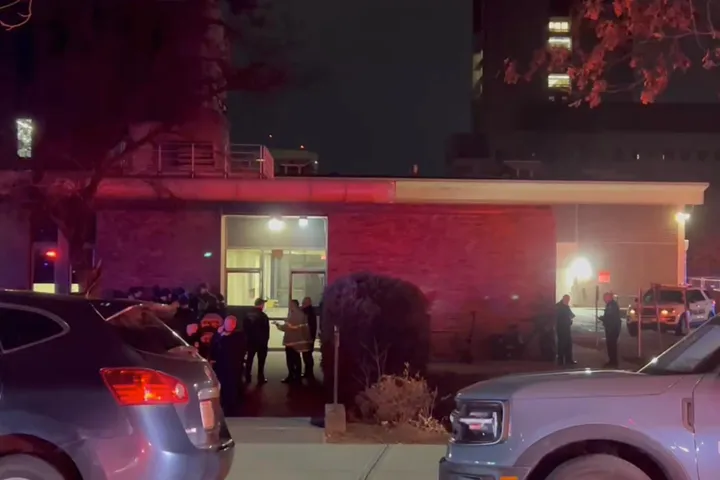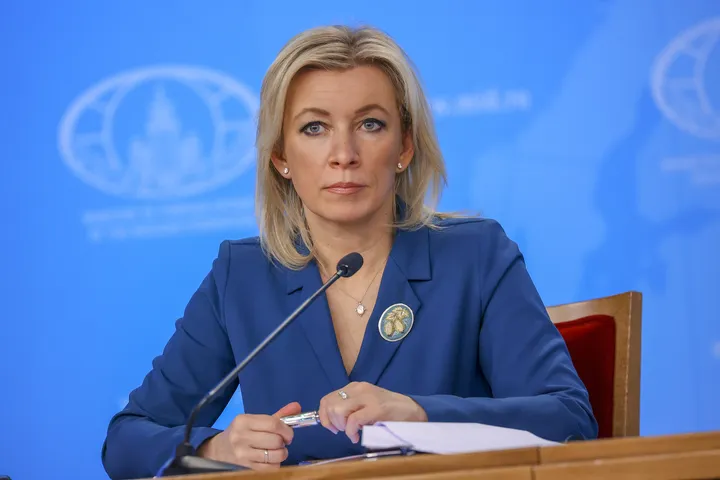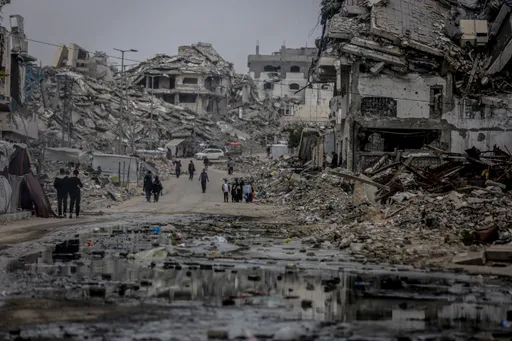Society would have to enact "unprecedented" changes to how it consumes energy, travels and builds to meet a lower global warming target or it risks increases in heat waves, flood-causing storms and the chances of drought in some regions as well as the loss of species, a UN report said on Monday.
Keeping the Earth's temperature rise to only 1.5 degrees Celsius rather than the 2C target agreed to at the Paris Agreement talks in 2015, would have "clear benefits to people and natural ecosystems," the United Nations Intergovernmental Panel on Climate Change (IPCC) said on Monday in a statement announcing the report's release.
For decades, scientists have been warning against the rise in global average temperature. The UN report says not much time is left to make changes.
TRT World's Reagan Des Vignes has more.
The IPCC report said at the current rate of warming, the world's temperatures would likely reach 1.5C between 2030 and 2052 after an increase of 1C above pre-industrial levels since the mid-1800s.
"With more than 6,000 scientific references cited and the dedicated contribution of thousands of expert and government reviewers worldwide, this important report testifies to the breadth and policy relevance of the IPCC," said Hoesung Lee, Chair of the IPCC.
Ninety-one authors and review editors from 40 countries prepared the IPCC report, IPCC said.
Keeping the 1.5C target would keep the global sea level rise 0.1 metre lower by 2100 than a 2C target, the report states.
That could reduce flooding and give the people that inhabit the world's coasts, islands and river deltas time to adapt to climate change.
The lower target would also reduce species loss and extinction and the impact on terrestrial, freshwater and coastal ecosystems, the report said.
"There were doubts if we would be able to differentiate impacts set at 1.5C and that came so clearly. Even the scientists were surprised to see how much science was already there and how much they could really differentiate and how great are the benefits of limiting global warming at 1.5 compared to 2," Thelma Krug, vice-chair of the IPCC, told Reuters in an interview.
"And now more than ever we know that every bit of warming matters," Krug said.
Reducing methane emission from cows
As greenhouse gas emissions increase, temperatures around the world could rise by as much as six degrees by the year 2100.
One of the main gases responsible for global warming is methane. One of the ways it's produced is when livestock burp or pass wind.
Now, one company has come up with a feed that could reduce methane from cows by 10 per cent.
TRT World's Shamim Chowdhury reports from London.
Limiting global warming to 1.5C
The IPCC met last week in Incheon, South Korea to finalise the report, prepared at the request of governments in 2015 to assess the feasibility and importance of limiting global warming to 1.5C.
The report is seen as the main scientific guide for government policymakers on how to implement the 2015 Paris Agreement during the Katowice Climate Change Conference in Poland in December.
To contain warming at 1.5C, man-made global net carbon dioxide (CO2) emissions would need to fall by about 45 percent by 2030 from 2010 levels and reach "net zero" by mid-century.
Any additional emissions would require removing CO2 from the air.
Unprecedented change
The report summary said renewable energy would need to supply 70 percent to 85 percent of electricity by 2050 to stay within a 1.5C limit, compared with about 25 percent now.
Using carbon capture and storage (CCS) technology, the share of gas-fired power would need to be cut to 8 percent and coal to under 2 percent. There was no mention of oil in this context in the summary.
Among other things:
— Half as many people would suffer from lack of water.
— There would be fewer deaths and illnesses from heat, smog and infectious diseases.
— Seas would rise nearly 4 inches (0.1 meters) less.
— Half as many animals with back bones and plants would lose the majority of their habitats.
— There would be substantially fewer heat waves, downpours and droughts.
— The West Antarctic ice sheet might not kick into irreversible melting.
— And it just may be enough to save most of the world’s coral reefs from dying.
'We only have slimmest of opportunities'
"The report shows that we only have the slimmest of opportunities remaining to avoid unthinkable damage to the climate system that supports life as we know it," said Amjad Abdulla, the IPCC board member and chief negotiator for an alliance of small island states at risk of flooding as sea levels rise.
"The next few years are probably the most important in human history," Debra Roberts, head of the Environmental Planning and Climate Protection Department in Durban, South Africa, and an IPCC co-chair, told AFP news agency.
A Summary for Policymakers of the 400-page tome underscores how quickly global warming has outstripped humanity's attempt to tame it, and outlines options for avoiding the worst ravages of a climate-addled future.
"We have done our job, we have now passed on the message," Jim Skea, a professor at Imperial College London's Centre for Environmental Policy and an IPCC co-chair, said at a press conference.
"For some people this is a life-or-death situation without a doubt," said Cornell University climate scientist Natalie Mahowald, a lead author on the report.
For scientists there is a bit of "wishful thinking" that the report will spur governments and people to act quickly and strongly, one of the panel’s leaders, German biologist Hans-Otto Portner, said.
"If action is not taken it will take the planet into an unprecedented climate future."
























